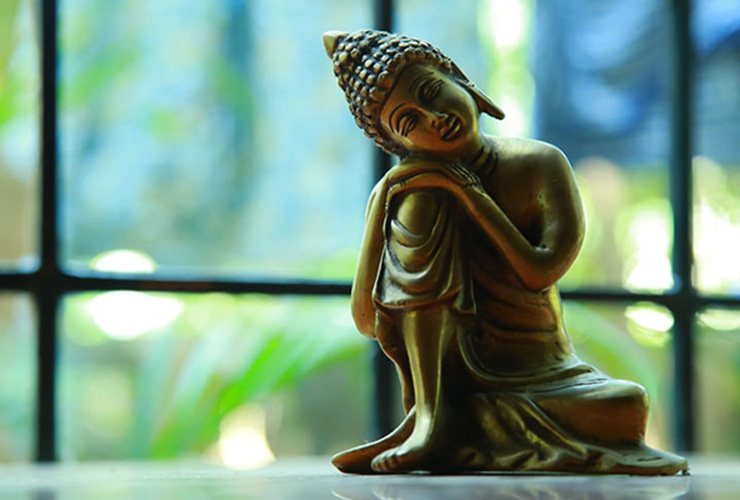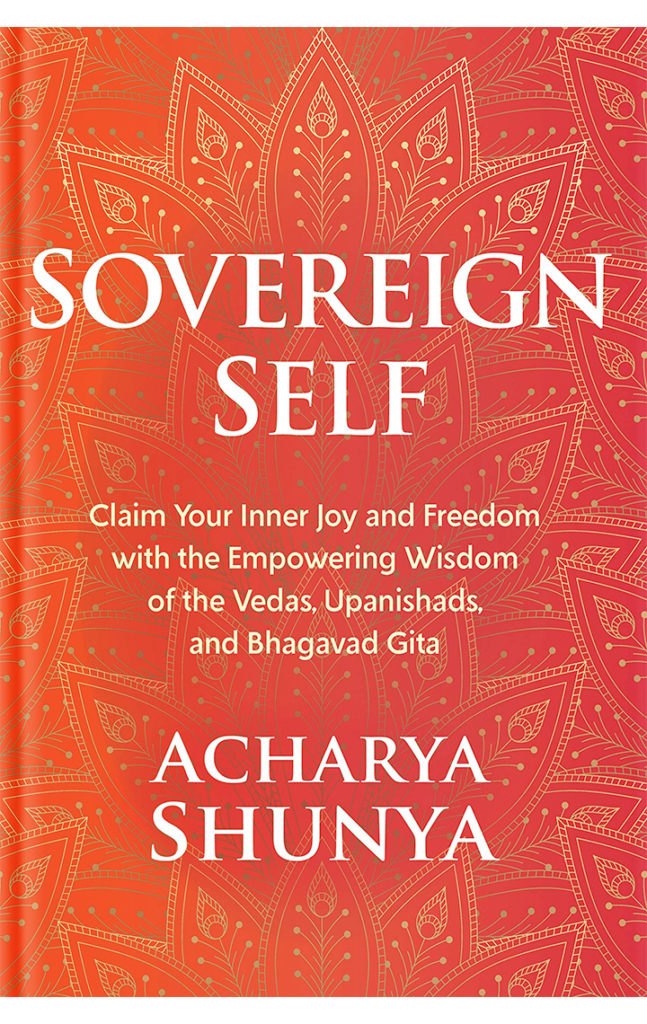
Enlightenment and vulnerability at first seem in opposition, but they are actually inextricably linked to serve your highest self
—
The vague concepts of enlightenment and vulnerability seem ever present in spiritual circles today. They are painted as opposing ideals, meant to seem like the two ends of a spiritual practice. One is supposedly the “goal” and the other is to be avoided at all costs. And while it is true that these two essential concepts do mean two vastly different things, these states of mind must come together to propel you on your path to sustainable Soul Power.
Often enlightenment refers to a state of mind that has gone beyond the perception of sorrow, either through rarefied understanding or embodying divine self-awareness. The familiar image of a blissful Buddha comes to mind. With a beatific smile and calm eyes, this enlightened teacher is the epitome of enlightened humanhood for us seekers in modern times. He appears as if nothing, not even an earthquake happening right under the mat on which he meditates, can baffle him.
Vulnerability is the quality of being easily hurt or attacked. Vulnerability comes from the Latin word for “wound,” vulnus. Vulnerability is the state of being open to injury or appearing as if you are. You can see why these two words belong to different worlds, or shall we say, vastly different states of minds. One is in control and the other is not.
And yet, enlightenment can be achieved only after we fully recognize, own, and care for our inherent human vulnerability — not otherwise.
Many spiritual seekers feel shamed or exposed when feeling vulnerable (perceived as emotionally weak). Many turn to seek a more “enlightened” state of mind through meditation or a chanting-induced trance like a self-hypnosis of sorts, almost as an escape from our vulnerable humanhood.
I feel that coexisting with vulnerability and enlightenment as a living state is the best and most honest way to go. Embodied consciousness (which we humans are) cannot really sit around and expect an enlightenment halo to appear from thin air. We have to chop the wood and draw the water — and in doing so, we may experience vulnerability. And so long as this vulnerability does not take us over and become our self-definition, then it is okay. Naturally, the vulnerability I refer to is not victimhood but a proactive recognition that we deserve care, help and respect — and making sure we get it.
You too must never simply banish your feelings, fears, trauma, doubts or whatever makes you feel vulnerable in a rush to become (or appear) enlightened. That would be tantamount to spiritual bypassing.
If you deny your vulnerability, you will disconnect with your soul’s power that demands you to be authentic in that very moment of time.
Therefore, to be truly enlightened, I have learned “self-value,” that is to value myself first and foremost. I gently hold my vulnerable human self in highest and tender most esteem. I can ascend in my own consciousness and touch something enlightened inside me, every single time! That is why the combined concept or Enlightened Vulnerability describes me best today. I advocate leading a life that is inclusive of both states of mind.
Today, I fully accept my vulnerable self and the responsibility that comes with recognizing it: to care for it and protect it through enlightened knowledge. It encourages realistic expectations for my fragile human self. I agree to keep my vulnerable self healthy, safe, supported, and always propelled onwards. I am pushed towards greater and greater light and freedom via spiritual truths gleamed from the Vedas, a vast body of awakening knowledge from ancient India.
I share with you my 10 enlightened values from my newest book Sovereign Self, Claim Your Inner Joy and Freedom with The empowering Wisdom of the Vedas, Upanishads and Bhagavad Gita (Sounds True, 2020), that I mindfully employ towards my human vulnerability. These are life lessons not emulated from a book of instructions but emerged from churning my own consciousness and surrendering to the fire and heat of my own spiritual truth.
My 10 Enlightened Values
- I have learned to love and respect myself and ask for what I need (and not suppress my voice).
- I give back, not compulsively or to prove a holy point, but when it is time to give, share and unfold, without bitterness or disease.
- I neither play emotional games nor get played into them. I have adopted the value of straightforwardness. I express what I feel and think to be true in my speech. My truth sets me free.
- To be a “good” human, I have learned to be a “happy human” first.
- I do not pretend to be superhuman. I allow for realistic expectations to emerge, so that I can connect to something “super” in all my transactions with all humans.
- I listen to my body’s needs and do not shame it for having needs. I meet them with love and respect.
- My vulnerable self can get fatigued. I accept that and do not push it. So, I gift it ample sleep, exercise and daily routines.
- I no longer subscribe to accepting abuse, of any kind, under any belief system: societal, cultural, religious, moral, karmic or otherwise.
- As an enlightened caretaker of my vulnerable human self, I thrive in my power to say no when needed. I value my no. I value my yes.
- Despite all the light I embody, my vulnerable self still gets afraid on occasion, without reason. I accept that. It is a human condition that is not personal to me, so I don’t try to rationalize it, or analyze it, or apologize for it, or hide it from others and pretend. I simply keep supporting myself and continue to breathe deeply. I pursue the liberating and emboldening wisdom insights from the spiritual tradition I grew up with in India.
In the last two decades, souls worldwide have chosen to recognize my spiritual work in the world and honor me with heartfelt words and beautiful awards for what I try to do. It feels good to be acknowledged for my work, but mostly it reminds me that I have more to do, and the most important work is to remain awake to my own vulnerability.
If you too want to make enlightened vulnerability a living practice, then you can read more in Sovereign Self, available for preorder everywhere.
You may also enjoy Podcast: Lodro Rinzler Interview with Kristen Noel
